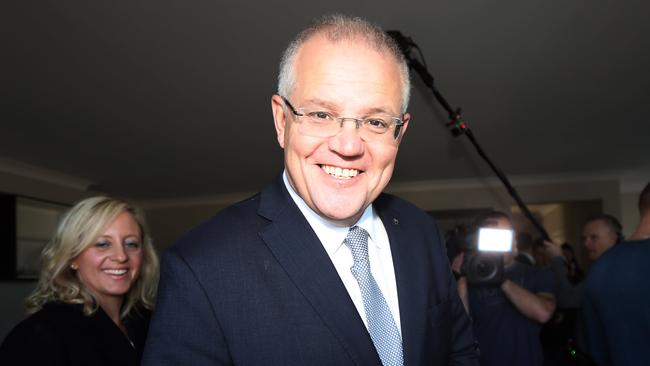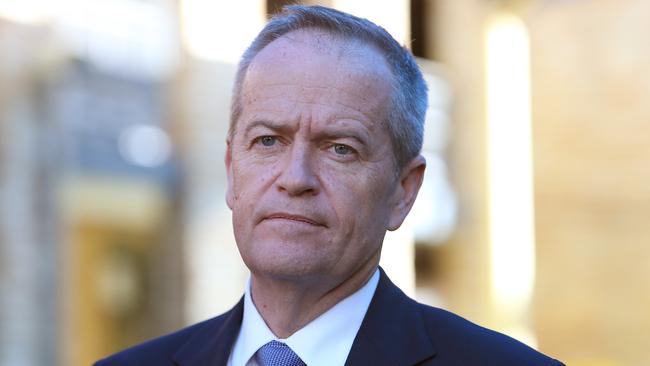Voters can thank themselves for bland politicians
If the sterile debates, local candidates cast off for social media stupidity, and confused campaign messages are getting you down this election cycle it’s time to consider your role in all this mess, writes Paul Williams.
Rendezview
Don't miss out on the headlines from Rendezview. Followed categories will be added to My News.
Most people look forward to an election campaign about as eagerly as root canal work.
I anticipate them like a triennial Christmas without the weight gain. At least I used to.
But after four weeks of arguably the dreariest and dirtiest federal campaign in living memory, my appetite has well and truly been suppressed. On the heels of lacklustre leaders, poorly explained policy, fits of fearmongering and the politics of personality (or lack of it), I’m fed up and pushing my plate away.
For the first time I’m repeating the great Aussie lament: I’ll be glad when this election is over.
But my fear is this sort of campaign won’t be over come Saturday night. Worryingly, this could well be the new gold (or is that bronze?) standard in Australian election campaigning in a 24/7 digital world.
MORE FROM PAUL WILLIAMS: It’s time for Shorten to shape up or ship out
Sterile and stage-managed debates, candidates cast off for social media stupidity, and a thousand confused campaign messages are undoubtedly contributing to pushing pre-poll voting to an highest.

That might also explain why even significant minor parties like Pauline Hanson’s One Nation and Clive Palmer’s United Australian Party languish at just 4 per cent support, why there remain so many undecided voters, and why — after three consecutive Newspolls — Labor leads the LNP so narrowly, 51 to 49 per cent after preferences. If even Pauline and Clive can’t move the unmotivated, and if this campaign is remembered more for a prime ministerial egging than enthusiastic debate, then we know we have a problem.
Many are blaming Labor’s unnecessarily large policy target — so riskily framed around tax — and leader Bill Shorten’s own longstanding unpopularity for potentially losing an unlosable election.
MORE FROM PAUL WILLIAMS: One Nation belongs somewhere, but not parliament
But we should be more specific.
Campaigns are not really won or lost on party unity, leaders and policies. They are won and lost on swinging voters’ perceptions of these things. There’s a world of difference in a political environment filled with time and information-poor voters happy to engage with image over substance almost every time.
And while we can rightly blame political parties and their armies of public relations officers for churning out hard-hat wearing, baby-kissing and football kicking crap, how we voters receive and interpret those images — and therefore how we make vote choices — remains very much in our own hands.
That’s why I bristle when I hear folk blame the parties and the news media alone for a growing blandness in Australian politics. For too long we whingeing voters have refused to look in the mirror and concede that we, too, are responsible when we allow parties to pull the wool over our eyes. As US President Dwight Eisenhower said: “Politics ought to be the part-time profession of every citizen”. That means every voter has the moral obligation to engage actively with politics, to the best of their ability, every day.
MORE FROM PAUL WILLIAMS: How far into a candidate’s life should we delve?
Do we read local candidates’ letterbox flyers before dumping them in the recycling bin, for example? And how many of us have reached out — in person, by phone or on social media — to a party or candidate to learn more of one policy or another? Have we watched Question Time, or read the Hansard, over the past three years to learn what our local MP is saying and doing in our local community?

Sadly, according to the 2016 Australian Election Study, just one in five voters watched the leaders’ debates that year — a figure likely lower this time around. Perhaps that’s why just 65 per cent said they “cared a good deal” who won the election in 2016 (down from 83 per cent in the 1980s) and just 30 per cent saying they paid “a good deal of interest” in the election (down from 50 per cent 30 years ago).
MORE FROM PAUL WILLIAMS: There’s only one way to fix our political donations system
But it’s not too late for this poll. Before Saturday, confirm online the electoral division you’re in, ensure you know your candidates’ names — Google them for a little background — read up on the parties’ key policies and maybe email or call their offices for help if you need it.
Another old adage is voters get the governments we deserve. Electors who work hard to scrutinise candidates and their policies will inevitably elect MPs willing to work hard for them. Lazy voters who care little about effective representation get lazy governments that are equally uncaring.
What kind of voter are you? Don’t wait for yet another three bland years to find out.
Dr Paul Williams is a senior lecturer at Griffith University


